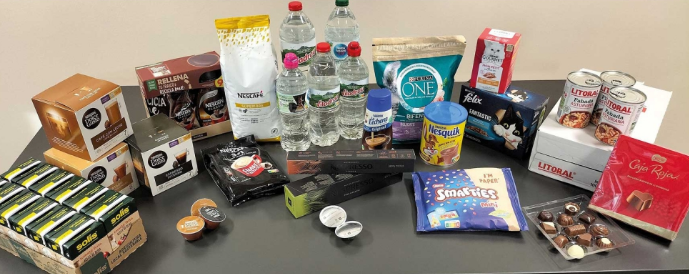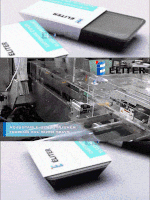Nestlé Spain advances in the recallability of its packaging
2023-02-24
Nestlé has a vision that none of its packaging, including plastics, ends up in landfills, oceans, lakes or rivers in order to create a future without waste. Thus, 96% of all Nestlé packaging in Spain is already designed to be recycled or reused.
The company has worked in three areas promoting eco-design, collaborating with other agents in improving collection, selection and recycling systems and promoting citizen awareness.
“Based on the fact that packaging is necessary to ensure food safety and product quality, at Nestlé, we are committed to the development of sustainable and innovative designs. We work to actively contribute to the search for solutions for waste management, thus reducing greenhouse gas emissions and promoting a circular economy. Our great ambition is that future generations can live on a planet without waste,” said Jordi Aycart, Head of Environment at Nestlé Spain.
 96% of all Nestlé packaging sold in our country is designed to be recycled or reused.
96% of all Nestlé packaging sold in our country is designed to be recycled or reused.
The eco-design
For now, to achieve this, the company has reduced, replaced and redesigned the plastic packaging of its products. In this way, it has encouraged the use of those with better recycling rates, minimizing materials that are difficult to recycle.
To give just a few examples, this is the case of the inner trays of Red Box chocolates that have been replaced by transparent ones to facilitate their recyclability or the replacement of the lids of Nesquik cans and Nescafé cans or of the easy-serve formats of La Lechera by others made with recyclable monomaterial. Also, the body of all Nescafé Dolce Gusto coffee capsules already have 20% less plastic.
Nestlé España, in addition, in some cases, has eliminated plastic from some groupings of the units that arrive at the points of sale, as is the case of the Solís tomato bricks and, in others, has replaced them with recyclable cardboard, from sustainable sources, as is the case in the Litoral range.
Recycled plastic and aluminum
The company has also promoted the launch of some formats of its water brands in our country – Nestlé Aquarel and Viladrau – made with recycled plastic or rPET, such as the 75 cl and 1.5 liter bottles of both brands that contain 50% rPET as well as the 1 liter Viladrau. Similarly, the company has also launched Purina ONE Bifensis complete cat food with packaging made from recycled plastic.
For its part, Nespresso Original and Vertuo capsules already contain 80% recycled aluminum.
Finally, alternative materials have also been sought, such as paper. In this way, for example, the entire Smarties product range is presented with packaging made of this material.
Alliances for recycling
Along with a design that favors its recyclability, Nestlé España has also promoted alliances with other partners with the commitment to improve selective collection and recycling.
Thus, the company has promoted the formation of Circularcaps, a non-profit organization formed by 24 coffee manufacturers, born with the aim of developing and managing an ambitious collective system of collection and recycling of used coffee capsules based on the system that the company, through its brands Nescafé Dolce Gusto and Nespresso, launched in Spain in 2010. This system already has more than 4,380 recycling points throughout Spain.
Recently, Nestlé, through its Nescafé Dolce Gusto brand, has also promoted the creation of the Alliance for the Recycling of Small Plastics (ARPP), a platform that promotes the recycling of this type of small plastics in Spain. In addition, the company, through this alliance, has reached agreements with the City of Valencia and the Generalitat Valenciana to develop a pilot project in the city of Valencia to separate, classify and recycle small plastic waste.
Nespresso also developed a similar initiative in the same city a few years ago through the Coalition for the Recycling of Aluminum and Light Steel (COAALI), an entity born to promote the effective recycling of small containers made with these types of materials, infinitely recyclable. A whole series of measures implemented with the aim of further advancing the recyclability of Nestlé products in our country and promoting the circular economy.




